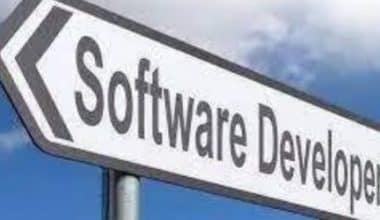The frameworks, plans, and strategies that are put in place to improve the relationship between your company and its customers are developed by a CRM marketing manager. In addition to overseeing the process of keeping your current clients, a CRM manager job description also entail setting up the components that aid in customer growth. CRM manager software also enables marketing and sales teams to record every interaction with prospects and customers.
CRM Manager
The processes and systems used to maintain customer relationships are thoroughly examined by a CRM manager. They also streamlines the various tools your sales, support, and marketing teams use to do so. A committed worker with access to that information, a CRM manager, can also use it in original and creative ways to retain clients. CRM managers also oversee sales and client relationships by applying customer relationship management principles. Identifying leads and target audiences for the best return on investment is your main objective in this position.
CRMs, or managers of client relationships, create strategies and plans to tighten the ties between a company and its clients. They use a variety of sales, marketing, and customer service techniques to better understand the needs of the customer, after which they advise the business on how to best satisfy those needs with products and services.
A CRM manager is also in charge of developing and implementing CRM strategies that allow the business to uphold a positive relationship with its customers.
Excellent CRM managers have a thorough understanding of and expertise in a variety of CRM platforms and can determine which one would be most appropriate for their company’s needs. They have both technical and non-technical skills that enable them to finish their work successfully. So, CRM Managers in the United States earn an estimated $90,740 in total compensation annually, with an average wage of $82,758.
What Does a CRM Manager Do
#1. Collaborator
The best customer experience partner is a CRM manager. Together with the sales and marketing teams, they develop new strategies that will increase customer retention and conversation by using data analysis and customer feedback.
#2. Connects the Business and the Clients
To develop and strengthen relationships with customers, a CRM manager also acts as the company’s point of contact. This ultimately aids in boosting sales and obtaining repeat business. They manage customer satisfaction, which occasionally entails damage control, and they look for ways to enhance the customer experience and provide better service. The CRM Manager helps resolve conflicts to keep customers happy when they have a bad experience.
They further collaborate with various departments to enhance the services the business provides to customers and to help draw in and keep new customers. CRM managers also analyze customer satisfaction using data, and they conduct market research to find the newest approaches to strengthening client relationships.
#3. Find Ways to Comprehend and Address Customers’ Needs
One of the main duties of a CRM marketing manager is research. Therefore, they must pay close attention to the details to comprehend the needs of the clients and how the business can best meet those needs to relate to clients effectively.
A CRM marketing manager frequently use surveys to learn more about the issues and expectations of their clients. They can also discover the best ways to take care of them in this way, which will ultimately increase their loyalty to the company.
#4. Conceive of and Carry Out Interactive Campaigns for Clients
The analytical CRM platforms HubSpot and Zoho are used by CRM managers to create interactive campaigns. With the help of these campaigns, we can maintain contact with our clients and deepen our relationships with them. Additionally, CRM managers work closely with the IT and CRM teams to create campaigns that are focused on the key components of customer needs and how to satisfy them.
#5. Discover Ways to Boost Business Sales and Ensure Customer Loyalty
Effective CRM managers can think critically. They work to attract new customers to their business and keep those customers coming back, which further increases sales and contributes to the company’s success.
#6. Teach Other Staff How to Handle Customer Relations
Training other staff members on how to interact with customers effectively is another responsibility of a CRM marketing manager. Additionally, they make sure the clients receive excellent services by doing this.
How to Become a CRM Manager
#1. Earn a Bachelor’s Degree
Despite not being formally required, most employers favor hiring CRM managers who have a relevant bachelor’s degree. The most popular specializations include those in marketing, hospitality, business administration and management, and other related fields. It is, however, A high school diploma or an associate’s degree may be sufficient to qualify for employment as a CRM manager, but some applicants for the position hold master’s degrees.
#2. Acquire Practical Work Experience
A minimum of three years of experience working in a customer-facing position, such as a salesperson or customer service representative, is required before applying for positions as a CRM marketing manager. Working closely with customers can give you practical experience in understanding their problems and helping them come up with solutions. Therefore, experience with CRM systems and technologies, sales, or customer service are examples of this.
#3. Earn a Certification
Obtaining a certification that states you do so is one of the best ways to demonstrate to prospective employers that you have the skills and knowledge necessary to work as a CRM manager. The National Association of Sales Professionals (NASP) offers a program called Certified CRM Professional (CCRP) that offers certification for CRM specialists.
#4. Improve Your Tech Skills
A modern CRM manager also needs to be familiar with all the available technology to improve the hiring company’s customer relationships. Additionally, it covers any additional relevant software and hardware, including specialized CRM applications, conventional office programs, web services, social media websites, and communication services.
Skills for CRM managers
#1. Communication Skills
Being able to communicate with customers straightforwardly and positively is among a customer relationship manager’s top skills. CRM managers must be able to interact with customers in person, on the phone, and in writing. They also must be able to listen to their problems and provide solutions in a way that encourages repeat business.
#2. Customer Service Skills
In addition to effective communication, a CRM manager should focus on providing excellent customer service and be constantly on the lookout for ways to do so.
#3. Computer Skills
Computer skills are also essential for a contemporary customer relationship professional, from the fundamental IT skills required to communicate with customers through a variety of channels to the more complex skills required to program and use CRM manager software.
#4. Teamwork Skills
Since the entire company must recognize and adopt a customer relationship strategy, a CRM manager must collaborate closely with many corporate departments, including sales, marketing, and customer service, among others.
#5. Presentation Abilities
CRM managers need to be able to explain to their organization’s management their customer service and retention strategies as well as the advantages and features of different company products to customers.
#6.Problem-Solving Skills
Managers of CRMs can analyze problems and look for long-term fixes thanks to their problem-solving abilities. These abilities enable them to ensure that customers have a wonderful experience and have nothing but positive things to say about your company.
Job Description CRM Manager
We are looking for a seasoned customer relationship manager who will be in charge of interacting with important clients by establishing and maintaining trustworthy relationships. The customer relationship manager will continually look for ways to expand the clientele and cultivate trusting relationships with potential customers. You should also be analytical and strategic when resolving problems if you want to guarantee the highest level of client satisfaction.
Excellent communication skills are crucial for a customer relationship manager, as are adherence to the company’s core values. To ascertain customer satisfaction, you will also carry out quality assurance surveys. With the results, you can address complaint-prone areas. In the end, a superb customer relationship manager will collaborate closely with sales and accounts managers to guarantee that all staff members maintain client relationships.
Customer Relationship Manager Responsibilities
- Creating and keeping profitable connections with important clients.
- Being in charge of your team’s interactions with customers.
- Responding quickly and effectively to customer complaints.
- Keeping clients informed about the newest products to boost sales.
- To make strategic plans, gather with organization managers.
- Increasing customer base through cross- and up-selling.
- Identifying and meeting the main needs of each customer.
- Using CRM software to conduct business evaluations.
- Identifying your rivals and developing a plan of attack in response
Qualifications for a Customer Relationship Manager
- A bachelor’s degree in business administration or a closely related field.
- 3 years of experience is required.
- Good interpersonal and communication abilities.
- Knowledgeable about every Microsoft program.
- High level of product expertise.
- A capable leader and team player.
- Keep a positive outlook and put the needs of the customer first.
CRM Manager Software
The best customer relationship management (CRM) manager software enables administrators to set up an automated workflow to guarantee that customer inquiries are handled promptly and by the appropriate team member. Additionally, these platforms compile all communication data so that sales and marketing teams can better understand where prospects and customers are in the sales funnel and adjust their outreach accordingly. To streamline customer communications, the majority of CRM programs integrate with crucial communications tools like email marketing and text message marketing programs.
Advantages of CRM Software
#1. Organize and Keep Up With Customer Data
CRM manager software is perfect for businesses that must use current information to serve their customers. The most fundamental yet crucial benefit that CRM manager software can offer to your company is this one.
#2. Make a Sales Process Forecast
Using data from previous sales, CRM manager software also enables you to forecast your future sales. The ability of businesses to forecast future needs and costs depends on sales reports and insights.
#3. Scale Up and Simplify Your Sales Cycle
You can also streamline your sales process and eliminate extra steps using the data that CRM manager software provides. You will learn what forms of communication are effective and which ones are not. CRM manager software can also assist you if you need to expand your sales process.
#4. Workflow Automation
The automation of data entry and administrative tasks by CRM manager software frees up your team’s time to concentrate on developing enduring relationships with customers. Additionally, workflow automation reduces the possibility of human error.
#5. Fostering Relationships With Customers
CRM manager software aids in customer engagement and long-term relationship building for your team. Furthermore, your team can keep track of customer information and tailor their interactions to each customer’s particular needs and preferences by using the data kept in your CRM.
The Best CRM Manager Software of 2023
#1. Salesforce
Salesforce offers the broadest range of industry-specific CRM products and adaptable solutions for any business. When it comes to CRM providers, Salesforce is regarded as a market leader and provides a well-liked platform with the bare minimum features that are perfect for small and developing businesses.
Salesforce provides a wide range of solutions that are specifically designed for sales, marketing, and customer service teams. With its simple navigation and adaptable layout, the dashboard makes it simple to stay on task while working through a particular project or nurturing a new lead. Business packages can be also upgraded as your company and your customers’ needs change over time to include more sophisticated tools like forecasting and AI-powered assistants.
The Essentials plan, with a user cap of 10, is preferred by many small businesses and costs $25 per user per month. By employing this tactic, small teams will have access to features typically reserved for large organizations, such as email templates, mass emailing, lead management, and web-to-lead capture. Custom applications and group forecasting are included in the Professional plan, which costs $75 per user per month.
The monthly costs for the Enterprise and Unlimited plans are respectively $150 and $300 for each user. To increase the CRM capabilities of your company as your customer base and revenue increase, each plan level offers additional key features.
#2. Pipedrive
Pipedrive is simple to install and operate, even for teams without dedicated IT staff to help with implementation. A fantastic CRM option is Pipedrive. With its visual tools, each opportunity is simple to understand, and its drag-and-drop interface makes it simple for team members to take action on the tasks that are mission-critical and highlighted on the dashboard.
You can enhance workflow systems that are already in place and streamline departmental processes by using customizable pipelines and fields. Additionally, Pipedrive’s strong mobile app enables you to communicate with team members and customers while on the go.
Pipedrive is easy to set up even without the assistance of a dedicated IT team, and its visual features are designed to increase the efficiency of reporting tools, communication tracking, and sales performance. Pipedrive’s AI tool identifies critical areas for improvement and suggests tasks and performance improvements.
Customers of Pipedrive can sign up for a free, 30-day trial that includes full access, and no credit card is needed. Over 275 integrations are available as part of Pipedrive’s Essential plan, which has a monthly cost of $14 per user when paid annually. Additional workflow automation and email features are available in the Advanced plan, which costs $24 per user per month.
The Professional plan, which costs $49 per user per month, offers detailed forecasting and one-click calling. The most comprehensive Pipedrive package costs $99 per user per month for the Enterprise plan, which offers unlimited feature use as well as user permissions and visibility settings.
#3. Hubspot
The free plan from HubSpot is ideal for startups looking for a straightforward sales, marketing, and customer service platform. Hub, HubSpot is an excellent choice for sales teams looking to boost productivity by consolidating data from various software providers. Customers can easily incorporate third-party tools to sync and delete customer data while automating administrative tasks to increase the productivity of your team.
Additionally offering over 90 report templates for editable dashboards in its perpetually free plan. Additionally, HubSpot provides a for-profit CRM option with customer report builders that enable you to access precise data and customize report results.
The free plan from HubSpot might be the best option for your small business if you want to integrate and centralize your sales operations. Several appealing features, such as a meeting scheduler and easy automation tools, are included in the basic paid plan for two users.
#4. Zoho
Your sales processes can be simplified with Zoho’s straightforward automation, which will also free up your team’s time from laborious tasks. With the help of Zoho, you can increase leads, speed up sales, and easily and effectively measure performance. With hundreds of integrations readily available and a customizable dashboard, Zoho makes it simple to create a unique and user-friendly platform.
All team members’ dashboards can be customized to highlight useful tools like the Feeds notification module, which is readily available. Other useful tools include SalesSignals, which monitors customer interactions across numerous channels and alerts team members to promising leads that must be followed up on immediately.
Standard, Professional, Enterprise, and Ultimate are the four price tiers offered by Zoho. According to the software provider, the most popular plan, called Enterprise, has a monthly fee of $40 per user when paid annually. Zia AI, a command center for the customer experience, Canvas visual CRM, a mobile software development kit, and multiuser portals are some of its practical features. The least expensive plan, Standard, costs $14 per user per month, while the most expensive plan, Ultimate, costs $52 per user per month.
#5. Monday Sales CRM
Monday A fantastic option for project management is provided by sales CRM. The main platform for work management offers vital time-saving and organizational features. Monday Customers of sales CRM benefit from unlimited boards and user-friendly interfaces for project organization. CRM for sales provides user-friendly technology to support your success. The core work management platform stands out for its deliberate design, ability to function and scale to any workflow, and versatility.
In addition to being a platform that is easy to use and well-suited for project management, Monday Sales CRM is also very customizable. Customers can set up and incorporate notification platforms with them. You can quickly create a variety of time-saving automation with Monday Sales CRM’s straightforward trigger and action templates without engaging in any challenging tasks or coding. A centralized data source can help you prioritize your sales opportunities, keep track of customer interactions, and save time while boosting productivity by automatically logging emails that have been sent.
A free limited individual plan from Monday Sales CRM comes with two complimentary seats, 5GB of storage, and more than 200 templates. When paid annually, the Basic and Standard plans cost between $10 and $14 per user per month. The Monday Sales CRM Enterprise plan is available for large-scale operations that require extremely sophisticated automation, analytics, integration, and security; however, you will need to get in touch with the sales team for a personalized quote. Students and nonprofits using Monday Sales CRM might be eligible for free or discounted access, and all annual subscribers might be eligible for discounts of up to 18% on plans.
#6. Keap CRM
For billing and invoicing, Keap offers simple-to-use e-commerce features. Keap is a useful tool for businesses experimenting with CRM manager software for the first time because of its user-friendly interface and straightforward setup. This CRM does not assume that its users are CRM experts; instead, it is made to make learning quick and easy for users.
Keap automates contact management from actions across various platforms in an intuitive way to make growing your business simpler. Keap offers premade, editable templates for new pipelines as well as helpful video tutorials outlining the features of the program.
Additionally, Keap provides user-friendly analytics and assistance for revenue trends, email marketing effectiveness and list expansion. Keap provides two main plans: Pro and Max, which are priced according to contacts. When paid for annually, the Pro and Max plans have monthly starting prices of $139 and $199 for two and three-user seats, respectively. While the platform can easily support more than 25,000 contacts, both plans have a cap on the number of contacts they include. The business also provides a 14-day free trial.
What Is a CRM Manager?
A client relationship manager is a specialist in developing various systems that strengthen the bond between a business and its clients. To assist the business in providing products and services that satisfy the needs of the customers, the primary responsibility of the CRM manager is to continuously seek out ways to better understand those needs and desires. A wide range of skills, particularly those in sales and marketing, are necessary for the job of CRM manager. The role’s ultimate goal is to boost revenue by keeping customers.
Why Are CRM Managers Important?
The primary goal of a CRM Manager is to raise customer satisfaction and loyalty because doing so can help the business accomplish its objectives. They are in charge of putting strategies, procedures, and systems in place to manage client information, enhance communication, and monitor client interactions with the company.
How Do I Become CRM Manager?
A bachelor’s degree in marketing, information technology, public relations, business administration, economics, or a closely related field is the minimum educational requirement for a CRM Manager. Most hiring managers favor candidates who hold a bachelor’s or master’s degree in a relevant subject, like business, marketing, or information technology.
To become a CRM Manager, you must have relevant work experience in addition to a degree. Experience with CRM systems and technologies, sales, or customer service are examples of this.
The National Association of Sales Professionals (NASP) offers a program called Certified CRM Professional (CCRP) that certifies CRM specialists.
What is a CRM manager vs. a CRM coordinator?
In addition to marketing, the manager would concentrate on strategies for CRM implementation and advancement. The CRM coordinator, on the other hand, would put a lot of emphasis on enhancing customer satisfaction and customer service.
These job descriptions, which are industry norms, must be able to cover the majority of the same duties for both positions if you are looking to divide the workload.
What Are Skills for CRM Managers?
- Interpersonal skills.
- Leadership skills.
- Analytical skills.
- Technical skills.
- Professionalism
- Communication skills
- Creativity and organizational abilities
Conclusion
The CRM Manager will work in conjunction with customer service, marketing, and operations to uphold a customer-focused attitude with a focus on initiatives that produce lifelong clients. A strong understanding of forecasting and budgeting is also essential for the job. The CRM Manager’s goal is to raise the lifetime value of each customer. When there are issues that your organization’s current staff members are unable to resolve, it is in your best interest to hire a CRM manager. The most successful CRM administrators never lose sight of their customers.
Related Articles
- WHAT IS CUSTOMER SUPPORT: Definition, Types, and Benefits
- CRM Tools For Small Businesses: Free Tools And Application






